
National Apprenticeship Week is fast approaching, and the Chartered Institute of Plumbing and Heating Engineering (CIPHE) is just one of the many groups drawing attention to just how important that are to the trade industry.
With university degrees proving to be less helpful in the job market, its not surprising that so many young people are turning towards different career paths when leaving school. Stable jobs are getting tougher and tougher to get into as Britain slowly climbs out of the recession, and when an employer has to make cuts new graduates are usually the ones that suffer. By learning a trade such as plumbing, electrics or any sub-sector of the construction industry, young people are providing themselves with skills for life that are often in demand for more than the skills most degrees yield.
According to the Office of National Statistics, over a quarter of university graduates are earning less than school leavers on apprenticeships. Not only this, but a survey by BAE Systems and the Royal Academy of Engineering also highlighted just how beneficial trades training courses can be. Almost a third of respondants (29%) said that they now see training schemes as a viable option for their children. They also admitted that five years ago it was something they would have never even considered.
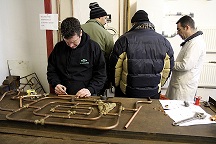
CIPHE CEO Kevin Wellmen stressed just how important apprenticeships, specifically calling them the "lifeblood of the industry" and saying that they should be given the respect they deserve. He added: "For too long they have been seen as a second-class route to a career. I believe that attitude is now changing."
However, he also commented that the plumbing and heating industry needs its apprentices to be of the highest standard, which they should aim toward by achieving an NVQ diploma. This will "ensure they have the right skills to tackle the challenges they will meet in the workplace".
And where can you achieve an NVQ qualification? Access Training Academies of course! Our intensive training courses provide all the skill and quality you'd find in a college course, but in a fraction of that time. The tutors are all experiences tradesmen themselves, all with a wealth of knowledge and experience to share with you in classes of no more than eight students to a tutor. With accredititation from the likes of City & Guilds, Logic, BPEC, NICEIC, the Gas Safe Register and more, you can rest assured that we put nothing short of 100% quality into all of our trade courses. To find out more, give our team a call on 0800 345 7492.
National Apprentice Week 2014 will take place from the 3rd to the 7th March. Stay tuned to this blog for more stories during that time!
2014 is already shaping up to be a big year for Access Training Academies, and today (the 13th January) marks the first steps we'll be taking to make your training experience here even better. This year ACS gas assessments will be returning to our Cardiff training centre.
 Now students that complete their gas training at Access will be able to complete their Logic ACS (Accredited Certification Scheme) gas assessments here. ACS is the industry recognised and accepted route for students to enter into the gas industry, earning their gas certificate which is needed to become a member of the Gas Safe Register. This itself is a legal requirement to be able to work on all gas installations and appliances in the UK. These assessments will not only be available to those who have completed an extensive gas course here, but is also open to others who may have completed a gas course elsewhere.
Now students that complete their gas training at Access will be able to complete their Logic ACS (Accredited Certification Scheme) gas assessments here. ACS is the industry recognised and accepted route for students to enter into the gas industry, earning their gas certificate which is needed to become a member of the Gas Safe Register. This itself is a legal requirement to be able to work on all gas installations and appliances in the UK. These assessments will not only be available to those who have completed an extensive gas course here, but is also open to others who may have completed a gas course elsewhere.
Students will be able to complete both the written and practical assessments required to qualify, covering the CCN1 Core Domestic Gas Safety module and then any of the additional appliance assessments relevant to your area of work. This includes the CENWAT (Central Heating Boilers & Water Heaters) qualification, CKR1 (Cookers), HTR1 (Gas Fires) and more. For a full list of what we can offer you here at Access, please get in contact.
To find out more about ACS gas assessments, our plumbing training or any of the many other trades training courses we provide here at Access please get in contact with our course advice team on 0800 345 7492 or via the form provided on this website. They'll be more than happy to answer any further questions you might have, as well as arrange of a tour of our facilities so you can get a first-hand look at what we do.
Yesterday we wrote about research suggesting how much work plumbers stand to potentially lose from missed calls. However today pluming suppliers Plumbfix revealed that they are predicting a "social revolution" within the trade.
 Tradespeople in general, not just plumbers and heating engineers, are all beginning to see social media sites such as Twitter, Facebook and LinkedIn as a valuable and most importantly FREE way to advertise and create brand awareness. 8 out of 10 tradespeople are already using it as a way to reach more customers and two fifths believe having a page on a social media site will make them look more established. They don't even just use it for reaching customers, as a third of tradesmen even admitted to use it to check on their competitors and what services/prices they are offering.
Tradespeople in general, not just plumbers and heating engineers, are all beginning to see social media sites such as Twitter, Facebook and LinkedIn as a valuable and most importantly FREE way to advertise and create brand awareness. 8 out of 10 tradespeople are already using it as a way to reach more customers and two fifths believe having a page on a social media site will make them look more established. They don't even just use it for reaching customers, as a third of tradesmen even admitted to use it to check on their competitors and what services/prices they are offering.
Plumbfix's research revealed that almost half of tradespeople (48%) are already winning new business through Twitter and the like, and a larger proportion (68%) say their social media activity has increased since this time last year.
Sandra Everett, the senior marketing manager at Plumbfix, stressed the importance of small businesses getting to grips with social media as members of the public are more likely than ever to go online in search of a tradesperson."As plumbers increase the amount of business tasks and transactions they undertake online, social media should be seriously considered as a cost-effective way to market themselves to more and more customers."
It isn't just tradespeople that are hitting up social media either - trading bodies and contractors are also extending their Twitter and Facebook presence. Even Access Training Academies have Twitter, Facebook and LinkedIn accounts where any queries concerning our courses can be answered.
Via Installer Online
Via InstallerOnline
Despite the advances in electric fires and other forms of household heating, gas fires are still proving to be the number one choice for homes. So if you're looking to go out and get your gas certificate to become a qualified engineer, you'll be pleased to know that business is just as good as ever.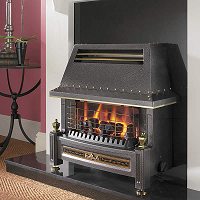
As well as the authenticity and flame effect which prove highly popular among the public, gas is still the cheapest fuel to run. On average, 1kW of gas supplied by British Gas costs just 4.662p (incl VAT) compared to nearly 14.259p (incl VAT) for 1kW of electricity - a number that seems to only be going up these days. Not only that, running a gas fire is actually more beneficial to the environment too, as it delivers half the CO2 emissions of an electric fire.
Gas fires are also far more efficient than they were back in the 80s, with developments in technology making them capable of delivering heat efficiencies of over 80% and heat outputs of 4.0kW - more than enough to heat your living room! But most of all a gas fire is reliable - if by chance your boiler were to break down over the winter (say, due to condensation freeze), you'll still be able to keep safe and warm until everything is back up and running.
Gas heating is just as vital now as it was 20 years ago, and Britain will continue to need engineers who have received the proper gas training. At Access Training you'll be able to learn all about the gas trade on one of our intensive training courses, eventually going on to complete a guaranteed work placement and subsequent ACS assessments. After that you'll be able to join the Gas Safe register and legally work on all forms of gas installation and appliance in the UK. Reckless gas maintenance can cost people their lives, so we're sure to make sure ALL of our students are training to the required professional standard.
To find out more give Access Training a call on 0800 345 7492.
December may not seem like the most suitable time to be studying on a trades training course to become a professional tradesman, but the truth is these winter months are actually when plumbers, electricians, gas engineers, bricklayers and roofers are needed more than ever. With the end of the year just around the corner and the cold weather homing in on Britain, government-endorsed standards group Trustmark is warning owners to ensure that their homes are fully prepared before the harsh season hits.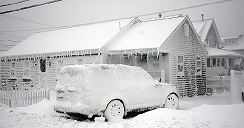
Trustmark have already noted a rise in tradesperson viewings on their online database during October, which saw an a 36% increase in comparison to 2012. Across the trades roofers (32%), plumbers/heating engineers (35%) and electricians (20%) were the ones to see the biggest rise, and with heavy snow forecast until May 2014, these professionals are going to be needed more than ever.
Below is a list of quick spot checks Trustmark recommend doing to help reduce the risk of the winter weather causing damage to your home:
- Most importantly, you should get your boiler and central heating checked/serviced by a Gas Safe registered engineer. By making sure your boiler is in peak condition, it will burn far more efficiently - meaning it'll use less fuel AND be warmer. Checking your boiler/central heating also means that if there is any serious problems, you'll be avoiding any tragedy that could happen.
- Make sure your insulation is in good quality. Not just your loft, but also look into lag pipes, water tanks and draught excluders.
- Clean out gutters and outlets of any leaves and debris, followed by checking for any leaks or damage.
- Look out for any damaged or loose tiles on your roof (from ground level to ensure your safety). Leep an eye out for any leaks or condensation appearing on the ceiling.
- Make sure no exterior walls have any cracked, loose or missing pointing. If they do, be sure to get it fixed before water can get into it.
They also highly recommend keeping a useful list of phonenumbers of tradepeople in your area just incase of an emergency - plumbers, electricians, gas engineers, roofers, carpenters...whoever you might need if a problem should arise.
So if you're a tradesperson yourself, be prepared for your work to be more crucial to homeowners than ever - you never know when you're going to be needed. Alternatively, if you're looking to start a new career as a fully-qualified tradesperson now could be the perfect time to start. An intensive course from Access Training Academies can have you up and qualified in a matter of weeks - just in time to help those in need. To find out more about our range of courses, including plumbing, gas, electric and various construction trades, please give our advisers a call on 0800 345 7492.
New figures from the Gas Safe Register have warned that around 900,000 homes could be at risk from a gas explosion, fire or leak resulting in carbon monoxide poisoning.
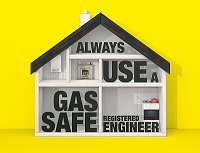 The UK's official gas safety authority has been inspecting nearly 43,000 homes nationally since January last year, and found that more than one in five (22%) privately rented homes were at risk. The 900,000 figure is an estimate of when all 4.1 million privately let homes are taken into account. This figure was noticeably higher than homes privately owned or rented through a local authority/housing association, which were at 16% and 12% respectively.
The UK's official gas safety authority has been inspecting nearly 43,000 homes nationally since January last year, and found that more than one in five (22%) privately rented homes were at risk. The 900,000 figure is an estimate of when all 4.1 million privately let homes are taken into account. This figure was noticeably higher than homes privately owned or rented through a local authority/housing association, which were at 16% and 12% respectively.
As per the Gas Safety (Installation and Use) Regulations 1998, landlords are legally required to ensure that all gas appliances and flues at safe in the properties they let. This involves arranging annual safety checks from a registered gas engineer. The legal requirement doesn't stretch to homeowners, but is also highly recommended by experts. A registered gas engineer is one who will have completed all the relevant gas training and gained the necessary qualifications, and then joined the Gas Safe Register - something which is also a legal requirement for gas engineers.
To combat this alarming figure, the Gas Safe Register is urging tenants and landlords alike to sign up to a free annual gas safety service reminder at StayGasSafe.co.uk, where users will receive an email telling them when their appliances are due for a check. In addition to these checks, landlords are also responsible for any repair work required to appliances or pipework. Should they not fulfil these obligations then they face prosecution, resulting in fines or even imprisonment in extreme cases.
Sarah Hill, Stakeholder Relations manager for Gas Safe Register, said: "Signing up for an annual gas safety reminder can help landlords stay on the right side of the law and most importantly, keep their tenants safe."
...
Are you an existing gas engineer in need of renewing your qualifications? Or alternatively a beginner looking to start a new career in the gas trade? Joining the Gas Safe Register is a legal requirement of all engineers, and this can only be done after earning the proper qualifications. Access Training Academies' instensive gas course will provide you with all the training you require, including a guaranteed work placement where you will be able to gather evidence of your work for the required gas portfolio. To find out more about the course and book your place, please call us on 0800 345 7492
The last few days have been a reminder that winter is well and truly here, with the temperature dropping and the country getting its first innings of both frost and snow. Even with energy bills on the rise, it's important to keep warm during this time of the year and make sure that your heating system is working properly. According to Government statistics, the 2012-13 winter period saw the largest excess mortality rate since 2008-09, with deaths coinciding with influenza, RSV and the cold weather.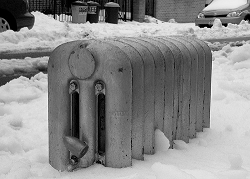
The run-up to Christmas can be a busy time for plumbers and gas engineers, with consumers coming with all kinds of problems including broken down boilers and frozen pipes. For the tradespeople reading this it'll be good for business, but for the rest of us here is a few pieces of advice to keep away any unwanted costs as well as making sure your home stays warm.
The UK had a pretty good summer this year so it's likely that you haven't turned the heating on for a while, so it'll be good practice to check it regularly to make sure it's all in working order. Suddenly starting it up in a cold snap could result in it freezing up and potentially breaking down. Regular boiler checks by a professional plumber and gas engineer are important and should be done once a year, including servicing according to the manufacturer's instructions. Not doing so not only puts you at risk of forking out for repair costs, but in the case of gas boilers also puts you and your family at risk of possible carbon monoxide poisoning.
Another handy tip is to bleed your radiators. If you can feel cold patches on them it may be due to some air trapped inside that's blocking the system. It's easy to do and won't require the help of a plumber, but should that fail it might be blocked with something else. In this case the radiator might need a chemical flush and you will require a Gas Safe engineer to get the job done.
Most importantly, and this really goes for any sort of DIY maintenance work - KNOW YOUR LIMITS! If there's something you know that you can't do, don't try and do a botched job of it anyway as you'll end up having to pay even more to get it repaired properly.
----
With plumbers and gas engineers needed more than ever during these winter months, now if the perfect time to qualify as a plumber and/or gas engineer with an intensive Access Training course. We not only offer comprehensive training for beginners, but also ACS reassessment to those needing to give their qualifications an update. To find out more contact one of our course advisers on 0800 345 7492.
According to new research commissioned by ADEY Professional Heating Solutions, installers and heating engineers might have a huge opportunity at their fingertips.
It seems that millions of homeowners across the UK are failing to maintain their central heating systems properly, resulting in not only a loss of efficiency but a reduced lifespan and an increase in the amount of energy needed to heat homes. Their research looked at more than 1300 homeowners across the UK, with only 55% of them confirming that they have their boiler serviced annually. One in 20 even said that they considered it an unneccesary expense!
ADEY also found that 45% of homeowners claim to have a boiler between 10 and 15 years old, with 25% who have lived in their current home for more than 15 years saying that they have never once had their boiler serviced. Furthermore, almost a third (30%) of homeowners have a problem with their central heating system, with one in 20 suffering from low heat levels. One in 10 people put up with noisy pipework in their homes – a common indicator of debris in the heating system – and 15% of people admitted they turn the thermostat up to try to fix their boiler, burning more fuel than necessary on a healthy heating system.
Consumer/environmental broadcaster Lucy Siegle said: "Boilers are the 'forgotten workhorses' of our homes. We expect them to carry on pumping away without any TLC, but homeowners need to understand that a well-maintained system costs less to run. This is where installers have a great opportunity to use their insider knowledge and help their customers counter rising energy bills by ensuring their heating systems work safely and efficiently."
ADEY’s commercial director Rebekah Howard added: "The results of our research suggest that many people don’t understand the benefits that having an annual boiler service will bring, and worryingly, just let their good old boiler in the corner keep chugging away without giving it any attention.
"The current climate presents installers with a timely opportunity to be telling customers how a well-maintained and efficient boiler can help save money on heating bills, reduce the risk of it breaking down when it’s cranked up to keep them warm, and ensure it’s safe to use. Installers can be assured that many of their customers will welcome this advice, as three quarters of homeowners surveyed wanted to know about the simple changes they can make to the central heating to reduce energy bills."
More findings from the search can be seen in the infographic below:
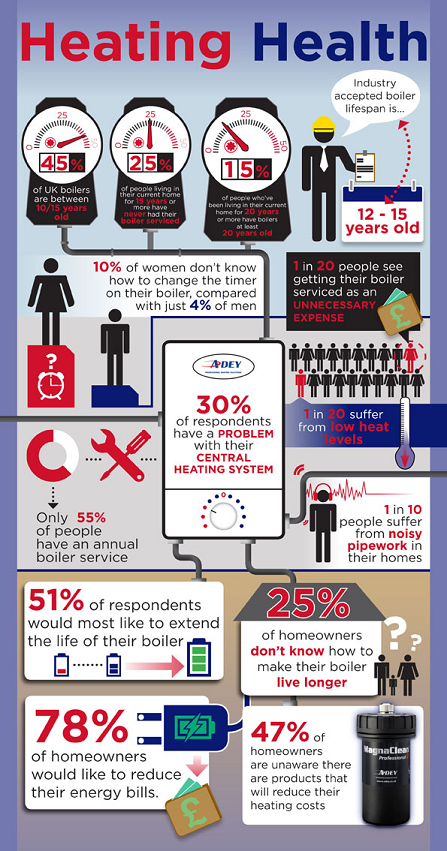
Via HVP Magazine
------
By becoming a qualified heating engineer, you too will be able to seize this opportunity for work. Not only that, but the life of a qualified plumber/engineer is varied, challenging and pays extremely well. You'll find yourself not only with a skill you'll have for the rest of your life, but a career that's never short of new work. But before any of this can happen, you'll need that right training and qualifications. Offering plumbing and gas engineer courses as both separate and combined packages, Access Training Academies is dedicated to helping students attain their goal of becoming professionally qualified, taking those first steps toward a brand new career. To find out more about how our courses can help you, contact one of our course advisers on 0800 345 7492 and book your place today!
We could go on and on about why we feel Access Training is the best place to come for your trade qualifications, but our words don't mean anything unless the students we train can attest to the quality we aim to deliver. That's why we're going to start showcasing some of the positive feedback we've received about our range of intensive training courses, so that any of you reading that are on the fence can see that we really are dedicated to giving our candidates the best qualifications and practical trades training available. You can read more of the testimonials we've received in the past here.
After spending several years abroad, Mark Todd came home to kick start his new career on our Intensive Carpentry training course…
 After leaving the Royal Marines around four years ago I got into working on maritime security on ships in East Africa. However after about 3 years I wanted to get a career back home, and I’ve always had an interest in carpentry. I’ve done a few little jobs here and there in the past but wanted to take it a bit further and get qualified.
After leaving the Royal Marines around four years ago I got into working on maritime security on ships in East Africa. However after about 3 years I wanted to get a career back home, and I’ve always had an interest in carpentry. I’ve done a few little jobs here and there in the past but wanted to take it a bit further and get qualified.
I was originally going to go back to college but obviously that would have taken around two years to do. With Access Academies I’ve been able to come here and do the course in two months which has been so much better. I’ve come out of the course finishing on a Friday, then gone straight into a job the following Monday.
The eight weeks I’ve spent here have been excellent and I’ve really enjoyed my time. The tutors have been absolutely brilliant – I’ve learnt so much from them and they are always ready to give any advice you need. Not just with the work we do here, but if we’ve got anything else going on outside they’ll do the best they can to help which is really good of them to do off of their own backs. It really gets you raring to go – it got to the point in the last week where I just wanted to get out there and start working.
I’m about to start work with two carpenters doing some refurbishment in a nursing home. The work is ongoing, it’s local and I’ll be picking up experience from people who have been in the trade for 20 years each. Right now I still feel the need to carry on my learning. I plan to self-employed eventually but for the next six months to a year I’m just going to try and pick up as much experience as I can so I’ll be fully prepared.
- Mark Todd, Swansea
------
Have you considered stepping into a brand new career and becoming a fully qualified tradesperson? Here at Access Training Academies we offer a full spectrum of trade courses including plumbing, gas, electricity, carpentry, tiling, plastering and painting & decorating. By training with us not only will you enjoy our state-of-the-art facilities and experienced tutors, but also gain exactly what you need for a long and prosperous career. To find out more please get in contact with our course advisers on 0800 345 7492.